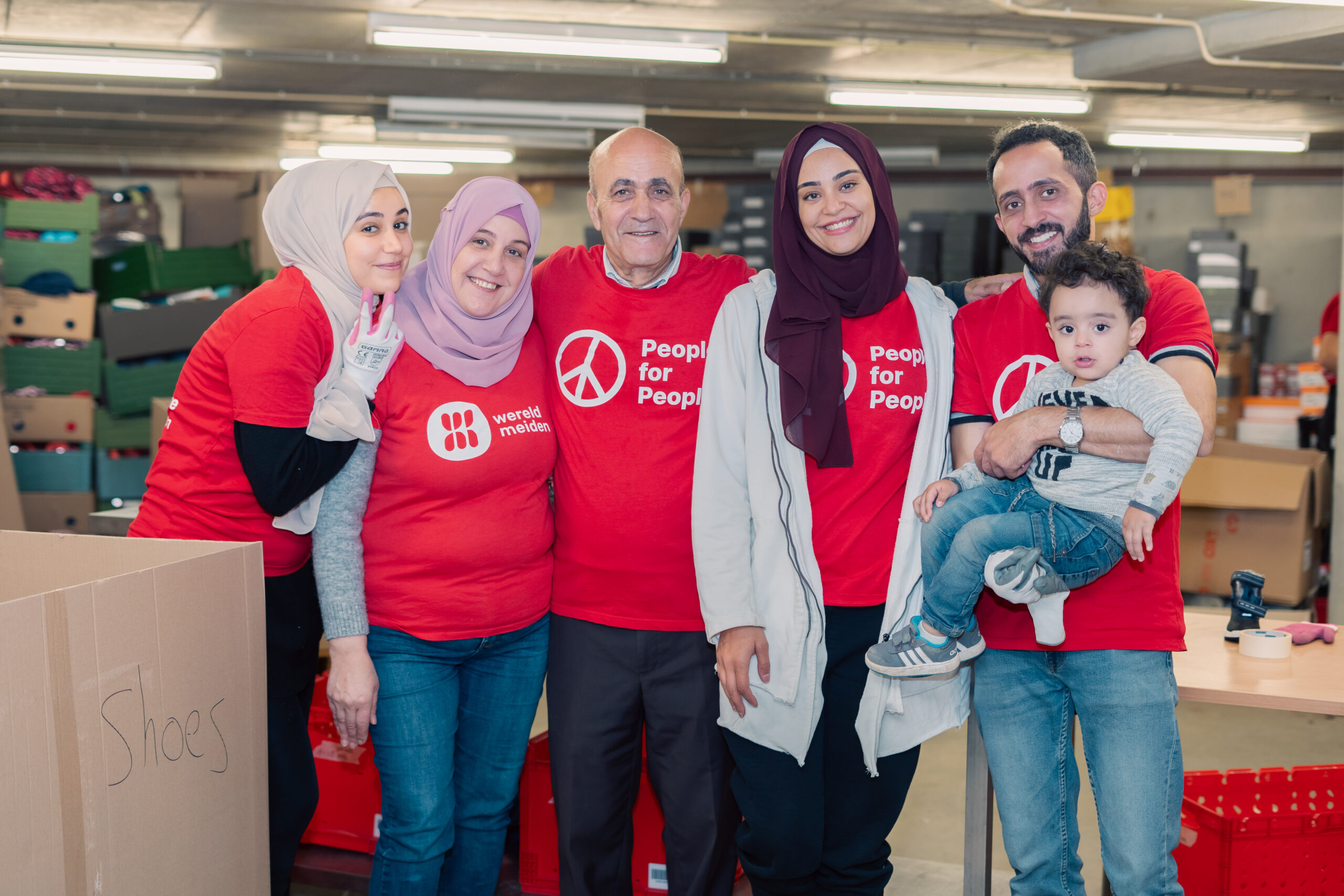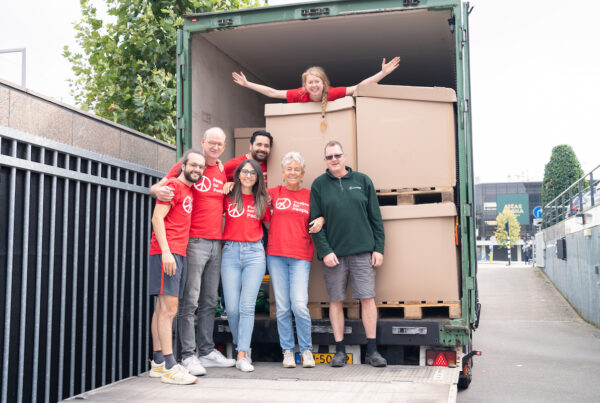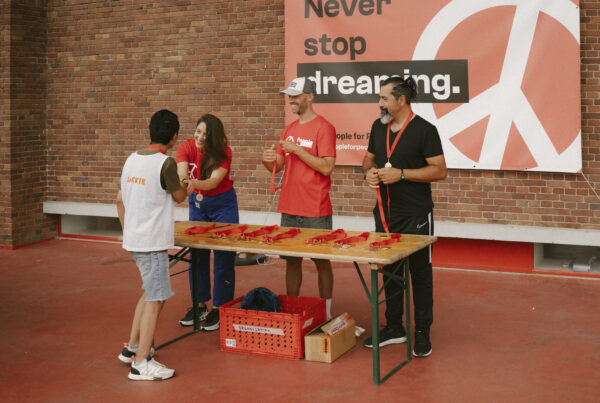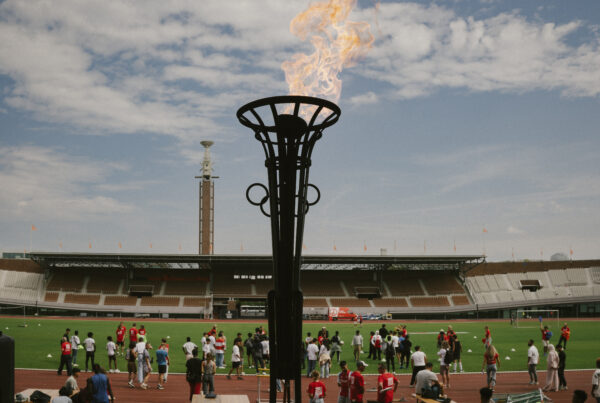On a warm September day in the People for People warehouse, a quiet rhythm fills the air as Ahmad carefully sorts winter clothing by size and type. His hands move with precision, a reflection of his years of experience as a doctor back in Syria. Beside him, his daughter Maysaa, a software engineer with a specialization in artificial intelligence, matches her father’s focus as they work side by side. Together, they help prepare these garments for distribution to unaccompanied minors—children who’ve arrived in the Netherlands without their families, seeking asylum.
For these children, often arriving with little more than the clothes they’re wearing, the warmth of these donated items means more than just protection against the harsh Dutch winter. It offers them a chance to return to school, play outside, and simply be children again after enduring unimaginable hardship.
Ahmad’s other daughter, Dania, tells me their family arrived in the Netherlands eleven months ago. Although the war in Syria started in 2011, as Palestinians, Dania and her family were not allowed to travel leaving them trapped in a dangerously escalating situation. Eventually, they were able to arrange for safe passage. Dania told me it was the first time she had ever taken a plane.
“When the war began, it was difficult for the Syrian people and also the Palestinian people,” Dania says as she reflects that before that Syria was home. She grew up, went to university and started her own family there with her husband Ghassan.
“When the war began it was hard to continue normal life and it became unsafe,” Dania says. Her family’s house was completely destroyed.
Now in the Netherlands, the family waits, like so many others, for their asylum applications to be processed. In the meantime, Dania, an experienced Arabic-English-French translator with a degree in English Literature, volunteers at her COA location helping to translate key information to fellow residents about their applications and facilitates communication between COA workers and residents.
Dania’s family, all fluent in English, also help to translate. Their help provides a lifeline for many families navigating this complex process. In the meantime, Dania is also working on her fourth language, Dutch.
“There are people who need help with their paperwork, getting their BSN, contacting the information desk, or meeting with their case manager. I help anyone I can.”
The family first connected with People for People last year when we visited their COA location to host a Sinterklaas celebration for the children. “The children were very happy when they received the gifts,” Dania remembers. “Children here are bored sometimes. All they have to do is go to school, and from time to time there are activities organized for them.”
Dania herself is seven months pregnant with her third child, and like any parent, she dreams of providing a bright future for her family. She hopes they will be called for their second interview with the IND soon allowing them to become status holders. This will make it easier for them to find employment. Motivated to return to work, and highly skilled, they’d be a valuable addition to the Dutch economy. But their status makes it difficult.
Asylum seekers can only be employed after their application has been pending for at least six months and their employer must apply for a special work permit. A study that came out earlier this year found that letting asylum seekers work unhindered could generate almost 2 billion euros for the Dutch economy in ten years.
For now, though, volunteering at People for People provides the family with a sense of purpose. They’ve found a community, and the work they do in the warehouse is more than just sorting clothing—it’s a chance to help so many others who find themselves in a similar situation. “I feel happy going to People for People with my family to help people. All my family enjoy that,” Dania says with a smile. “When we help people, we feel very happy.”
In just two hours, thanks to the family’s efforts, the warehouse inventory was sorted and ready for distribution. As they pack up to leave, there’s a sense of pride in what they’ve accomplished. It’s not just about where they live now or the degrees they hold; it’s about who they are as people—compassionate, dedicated and hopeful.
“My mother is our source of hope and optimism because she taught us since we were young,” Dania says.
She dreams of a future where her children can thrive in a safe and supportive environment. “My daughter’s teacher said to me, ‘Lilyan is smart, she can go to group three,’” Dania shares proudly, her face lighting up at the thought of the opportunities that lie ahead for her children. Like any parent, she wonders what they might achieve, given the chance.
For now, the family remains hopeful that their asylum applications will soon be processed, opening up the possibility of contributing even more to their new community. Until then, they’ll continue to offer their time, skills, and hearts to helping others—because, as they’ve shown, it’s not just about waiting for a better future; it’s about building it, one act of kindness at a time.




